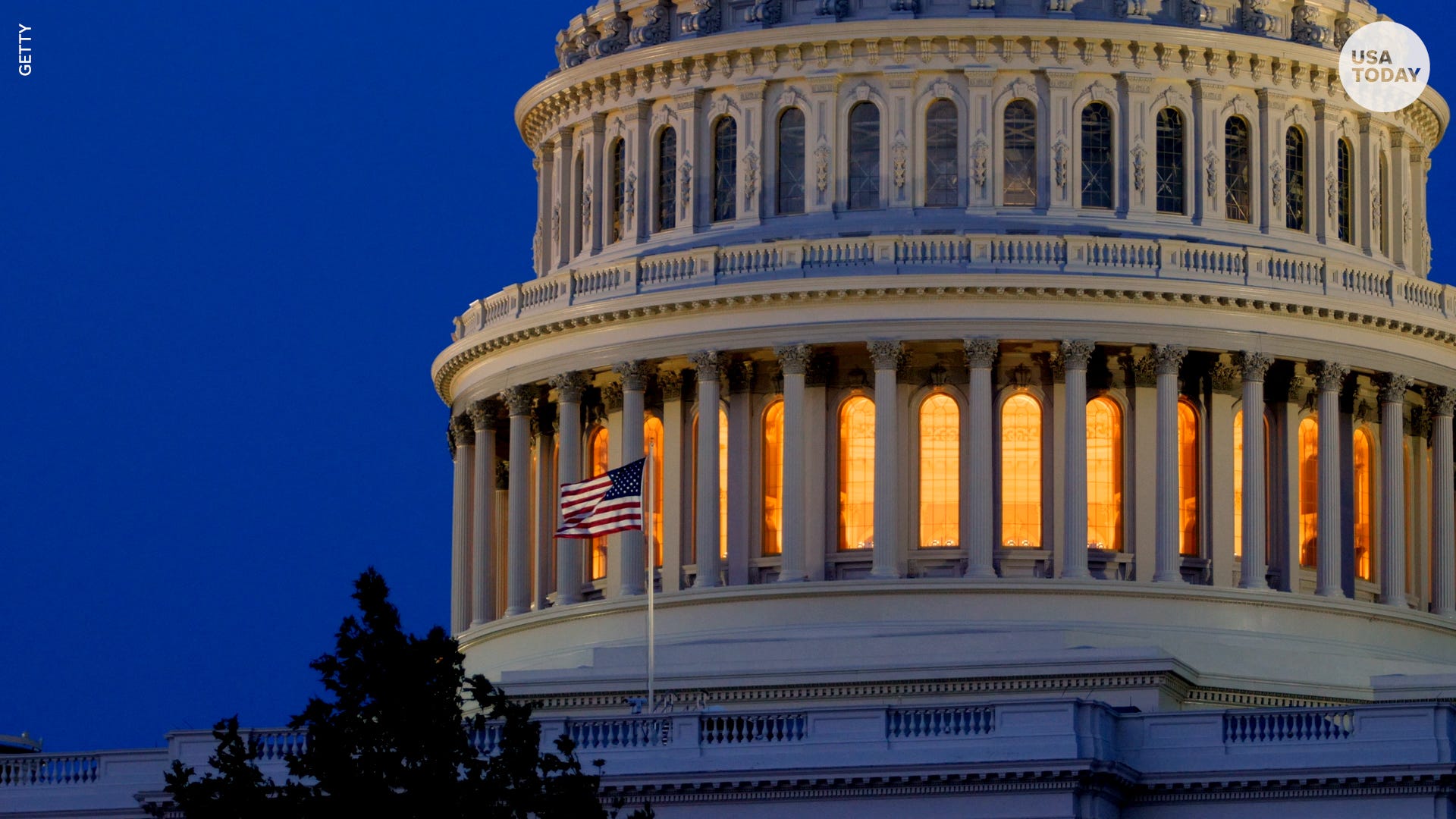Perdue hopes to hold off Ossoff in Georgia Senate race as results show possibility of runoff

WASHINGTON – Though Democrats' chances at winning a Senate majority are diminishing, the fight may stretch into 2021.
Both of the Georgia Senate seats up for election this year could head to runoff contests in January, based on results in the state as of Thursday.
Republican Sen. David Perdue dipped slightly below 50% of the vote Thursday evening. If that tally stays below the 50% mark, he'll face Democratic challenger Jon Ossoff on Jan. 5 in a runoff. The other Georgia Senate seat contested between GOP Sen. Kelly Loeffler and Democrat Raphael Warnock, senior pastor of Ebenezer Baptist Church in Atlanta, already appears headed to a runoff next year.
The races could play an important role in the makeup of the new Senate, though Republicans are likely to keep their majority. Democrats flipped two seats this election – in Arizona and Colorado – and lost one seat in Alabama, resulting in a net gain of one seat. Going into Election Day, Democrats had to win four seats to gain a majority or three if they won the White House.
The remaining chances for Democrats are the two Georgia seats, as well as seats in Alaska and North Carolina. The Associated Press has yet to call these races.
Republicans mostly beat challengers in seats Democrats hoped to win this week. The GOP was victorious in Senate races in Iowa, Maine, Montana, South Carolina and a long-shot race in Kentucky against Senate Majority Leader Mitch McConnell.
Media outlets, including The Associated Press, called the Michigan Senate race, a top Republican target, for incumbent Democratic Sen. Gary Peters on Wednesday evening. Republican candidate John James had not conceded the race, and his campaign alleged election improprieties on Fox News.
Here are the remaining races to be decided:
Election results updates: Biden is poised to win but it isn't over. What we know
Georgia
Perdue led Ossoff 49.9% to 47.7% as of Thursday evening.Perdue needs to secure at least 50% of the vote to avoid a runoff, and Ossoff and Libertarian candidate Shane Hazel have chipped away at Perdue's vote share over the past several days. Gabriel Sterling, Georgia’s voting system implementation manager, said midmorning Thursday there were about 60,000 votes left to be counted. State workers would probably finish counting the remaining ballots by the end of the day, he said.
As Perdue's vote share declined, Ossoff's campaign campaign manager, Ellen Foster, said Thursday they were "confident" that a runoff election would be called for January and that Ossoff would win.
Perdue's campaign manager, Ben Fry, countered, "If overtime is required when all of the votes have been counted, we're ready, and we will win."
More: Latinos for Trump, Arizona vote for Biden shows diversity of Hispanics in US
North Carolina
Incumbent Republican Sen. Thom Tillis lead in North Carolina by almost 97,000 after 93% of the votes were counted. He thanked supporters in an Election Night speech for a "stunning victory." His Democratic opponent, former state Sen. Cal Cunningham, declined to concede the race, waiting for more ballots to be counted.
North Carolina's Senate race was the most expensive in U.S. history, according to the Center for Responsive Politics. It was upended in its final weeks by disclosures that Cunningham had an affair and Tillis tested positive for COVID-19.
President Donald Trump led Democratic presidential nominee Joe Biden by roughly 77,000 votes in North Carolina after about 94% of the vote was counted.
Alaska
Alaska's Senate race was a long shot for Democrats, but it became a potential pickup opportunity as the campaign cycle progressed. Democratic-backed independent candidate Al Gross raked in campaign donations and polled competitively with incumbent Republican Sen. Dan Sullivan.
Trump won Alaska by about 15 percentage points in 2016. Sullivan won election to his first term in 2014 by about 2 percentage points.
After about half of the vote was counted, Sullivan led Gross by almost 58,000 votes, or about 30 percentage points.
Nevada: Election officials are 'working feverishly' but won't rush vote count in presidential race
Contributing: Lita Nadebah Beck, Christal Hayes, Joey Garrison, Deirdre Shesgreen, and Ledyard King